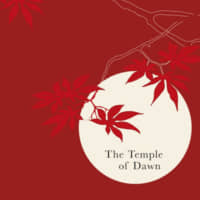A strange and uneven novel, "The Temple of Dawn," the third volume in Yukio Mishima's "Sea of Fertility" tetralogy, was first published in 1970. It is an elegy to the loss of pureness in the Japanese national spirit, which Mishima, a nuanced nationalist, saw tamed after the country's defeat in World War II. "Was there any way to live honestly with Japan," he writes pointedly, "other than by rejecting everything?"
The Temple of Dawn, by Yukio Mishima.
336 pages
VINTAGE CLASSICS, Fiction.
The story revisits Shigekuni Honda, the protagonist of the previous installments, who seems to embody the passive complacency that Mishima perceived in Japan. On a business trip to Thailand, Honda encounters the beautiful princess Ying Chan, a seeming reincarnation of his childhood friend Kiyoaki. As the aging lawyer senses his own death approaching, he abandons his life-long rationality and gives in to erotic obsession.
At times the narrative sags with excursions about Buddhism, which almost feel lifted from textbooks. But there are brilliant portrayals of Japan in the 1940s, with vignettes of keen social satire and a section on postwar Tokyo that is breathtaking in its artistry, a lucid phantasmagoria of demolition. "If one wished to live, one must not cling to purity," Mishima muses, as if to dissuade himself from his imminent suicide.
Both plodding and hauntingly beautiful, "The Temple of Dawn" sees a narcissist writing for his life, a man who has cornered himself through unyielding principle, shouting poetry and blood to leave a mark on the world. It is a book of defiant impotency, a sublime mortal clamor before the heavens.



